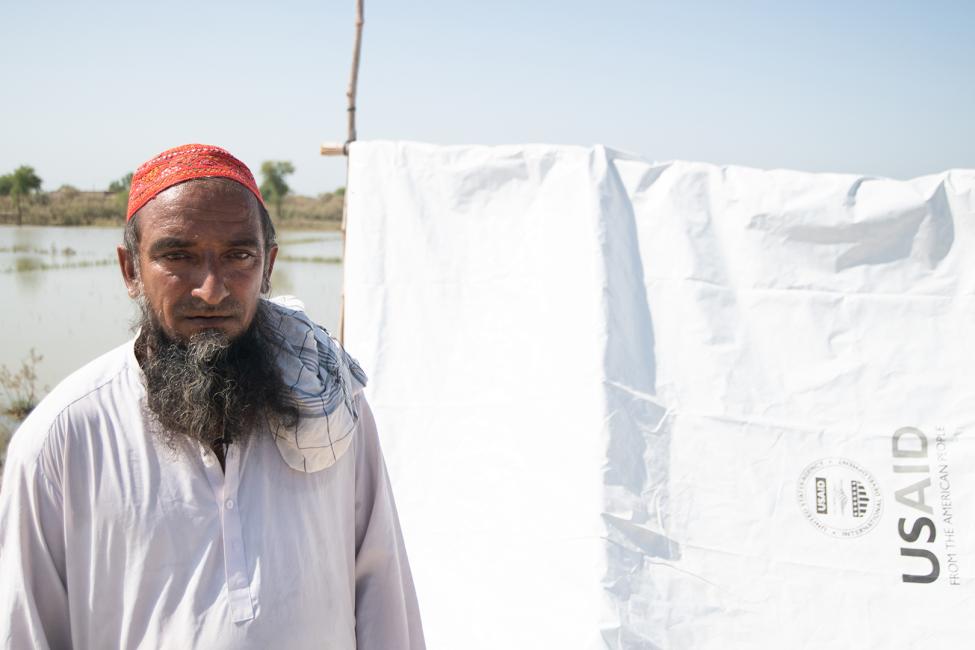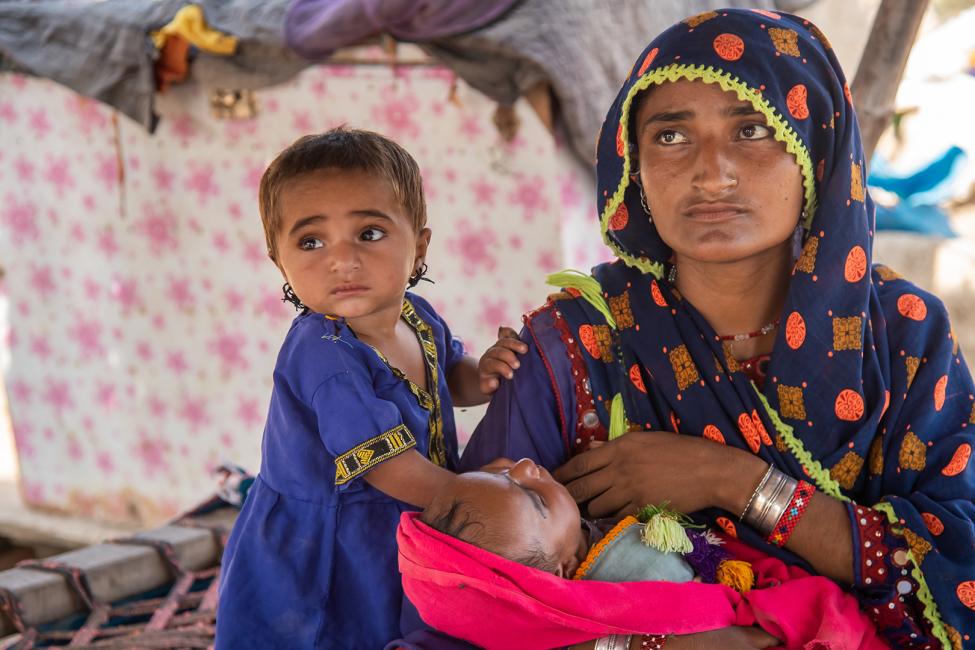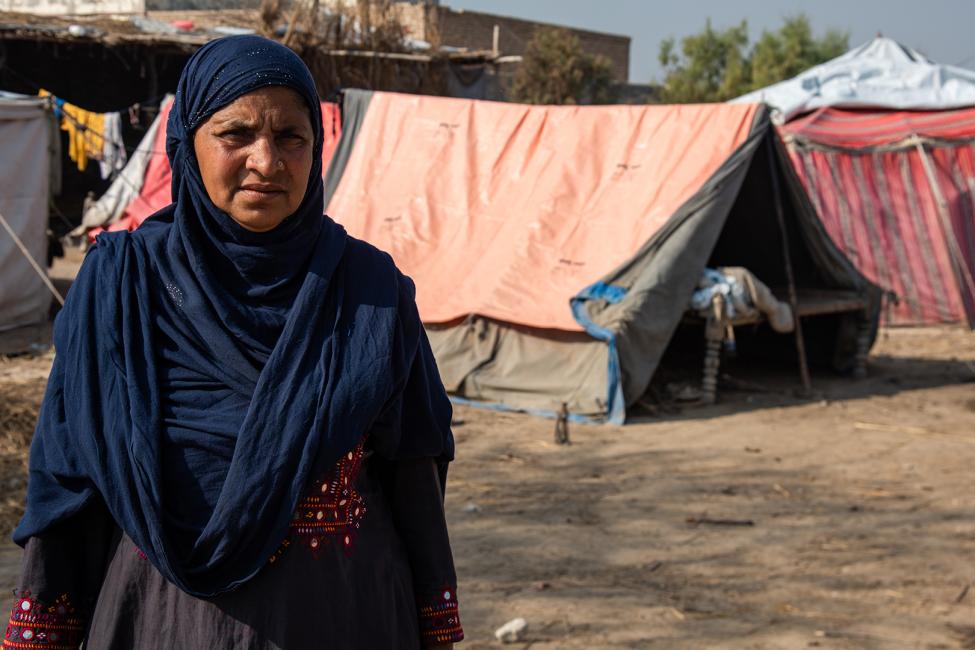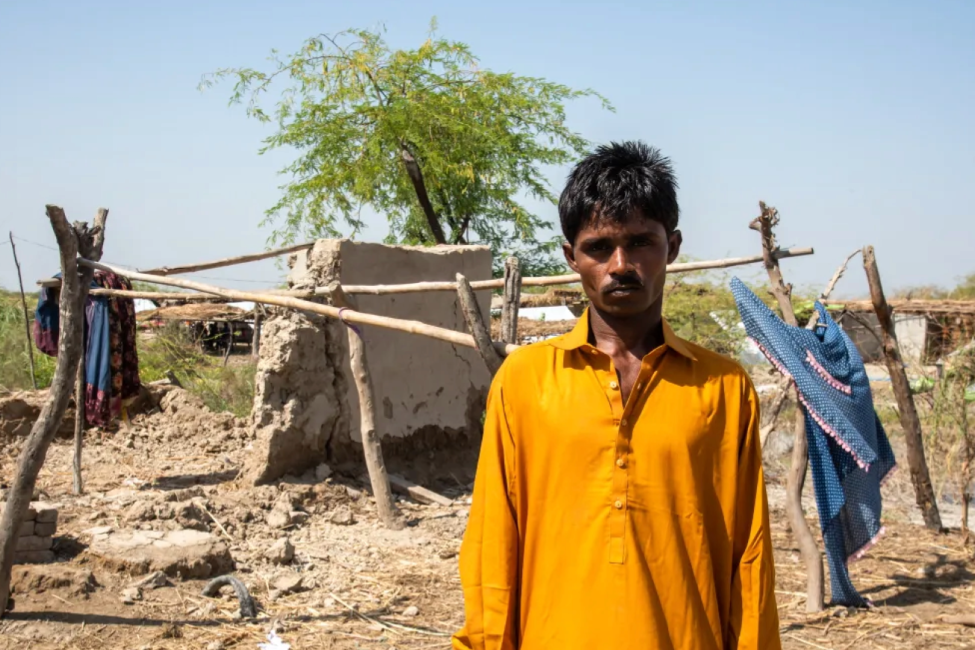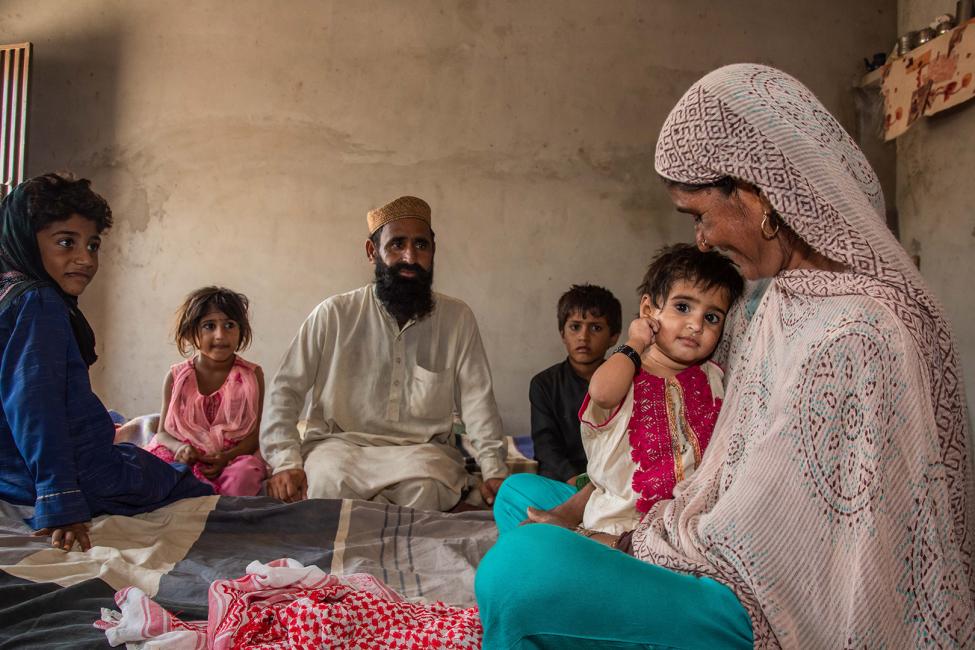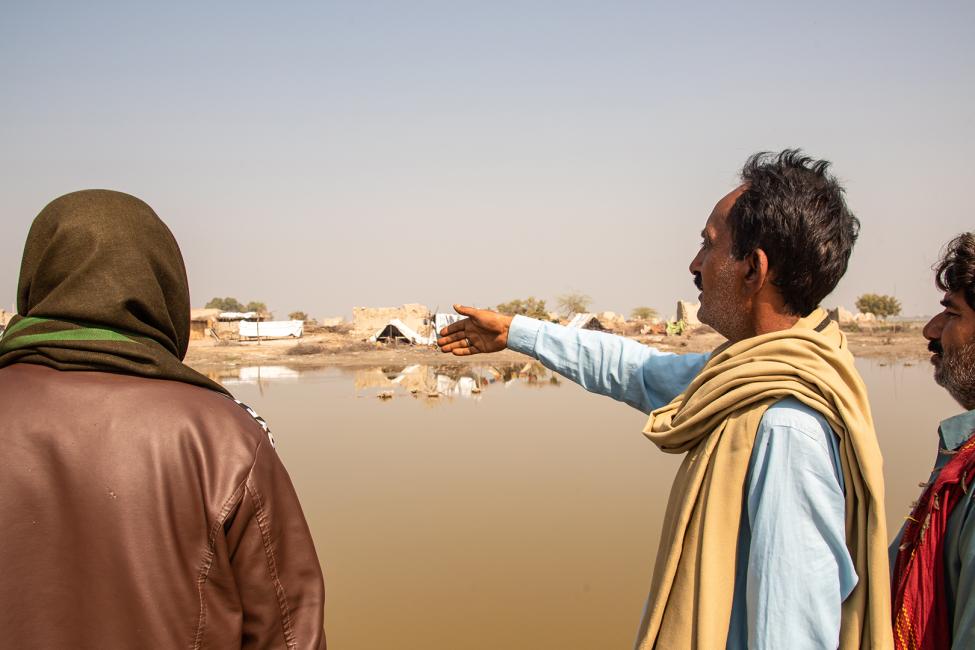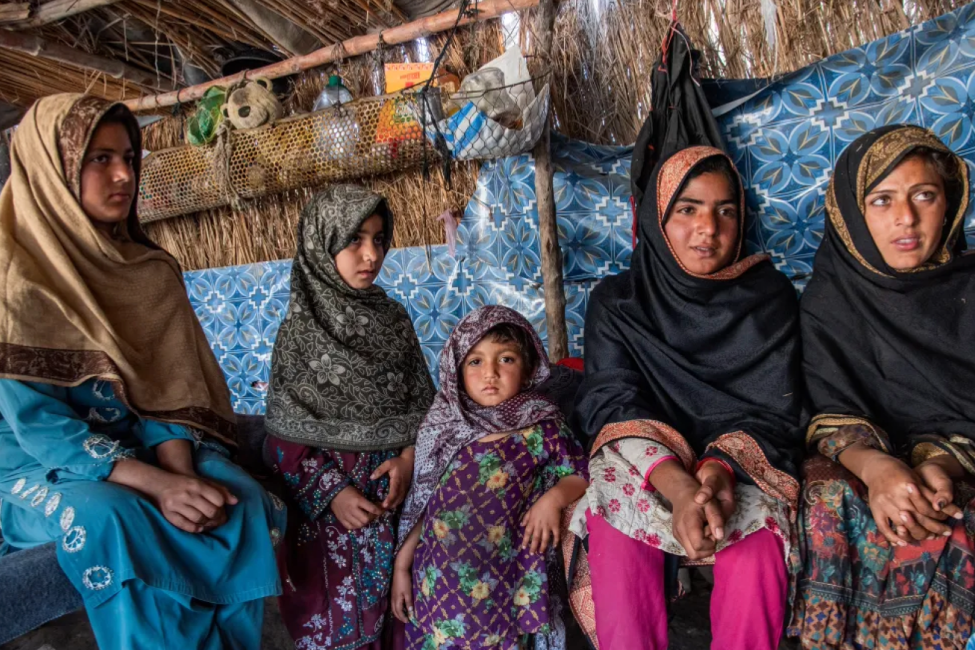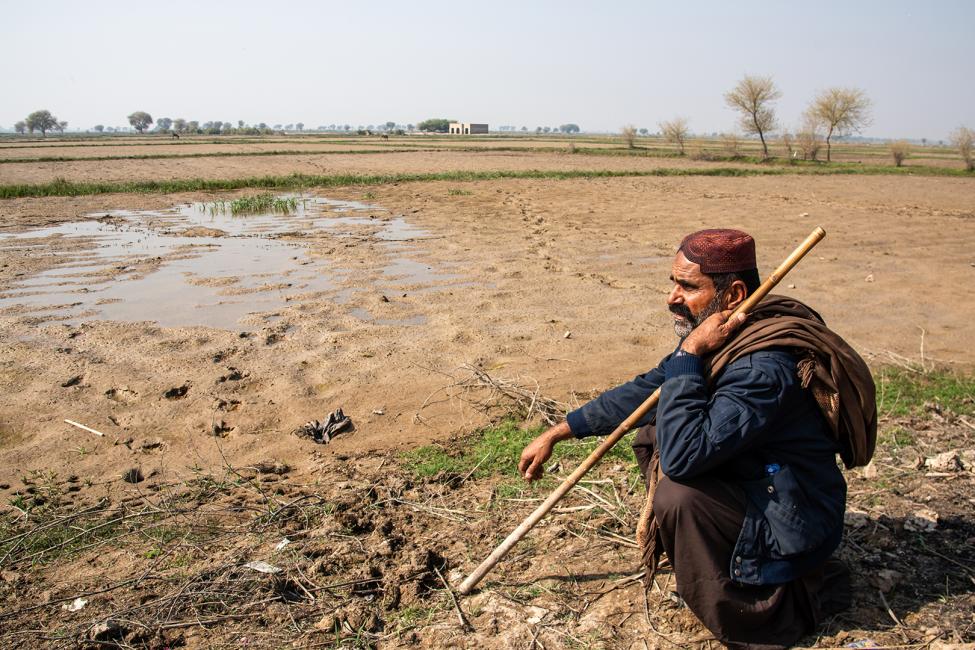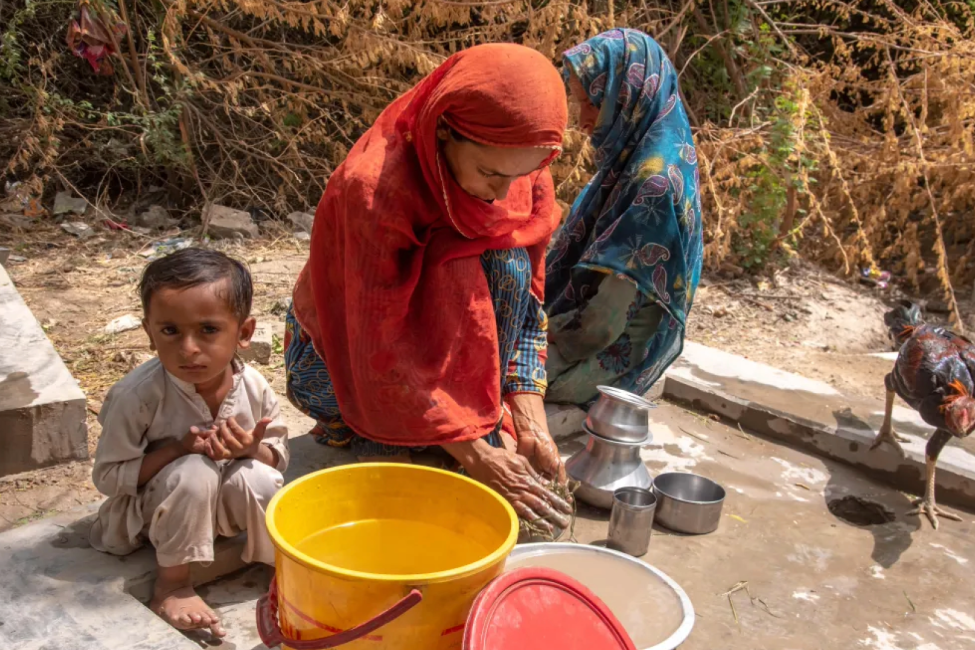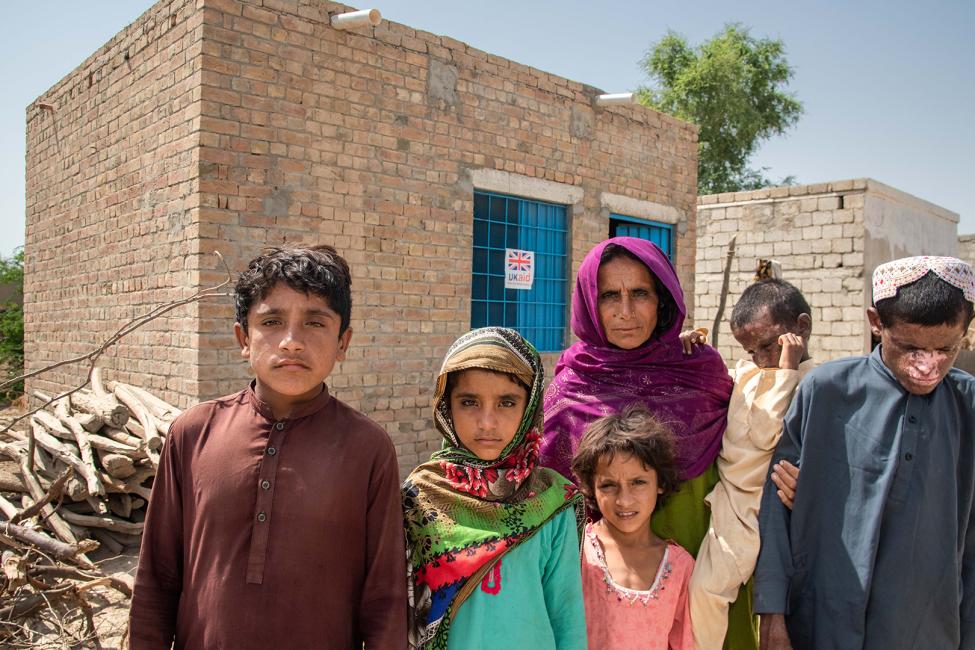-
Who We Are
WHO WE AREThe International Organization for Migration (IOM) is part of the United Nations System as the leading inter-governmental organization promoting since 1951 humane and orderly migration for the benefit of all, with 175 member states and a presence in over 100 countries.
About
About
IOM Global
IOM Global
-
Our Work
Our WorkAs the leading inter-governmental organization promoting humane and orderly migration, IOM plays a key role to support the achievement of the 2030 Agenda through different areas of intervention that connect both humanitarian assistance and sustainable development. Across Asia and the Pacific, IOM provides a comprehensive response to the humanitarian needs of migrants, returnees and host communities.
Cross-cutting (Global)
Cross-cutting (Global)
- Where we work
- Take Action
- Data and Resources
- 2030 Agenda
This photo essay was originally published by Al Jazeera in October 2023.
Pakistan last year experienced unprecedented floods. More than 33 million people were directly affected, with a staggering 20.6 million requiring urgent humanitarian assistance. The consequences were dire – nearly eight million people were displaced and at least two million houses destroyed.
Although the water has receded, a year later, the scars of the catastrophe remain fresh.
At least 1.5 million people are still displaced. Basic necessities, such as food and shelter, continue to be out of reach for a large portion of the flood-affected population, with more than 40 percent of them relying on humanitarian aid for survival.
While the immediate concerns of food, shelter and water have been largely addressed, climate anxiety among the flood-affected communities across Pakistan has failed to make headlines.
Although climate anxiety is a newly coined term, it reflects a distress that has long been felt by these communities.
Amid the increasing threat of climate change, floods in Pakistan have grown more frequent, resulting in some communities facing an unending cycle of displacement and despair. For these communities, the fatigue caused by climate-induced disasters has begun to take its toll. They are not only exhausted but also more anxious than ever about the potential threat of cascading disasters.
Residents in these flood-affected areas are living in fear of an uncertain future. They grapple with the harsh reality that they lack the necessary preparations to face another flood, and they have no clear plans for shelter should their already fragile homes become uninhabitable.
Despite contributing very little to the global climate crisis, Pakistan remains one of the countries most vulnerable to the effects of climate change. And climate anxiety will likely continue to rise in the country, especially among the most vulnerable populations.
'Even if the floods continue to devastate our village year after year, I have no choice but to stay here. I can't even afford the bus fare to the city, and we have nowhere else to go,' Muhammad said. His village in Shikarpur district has been repeatedly hit by floods in 2010, 2011, 2012 and 2022. [Usman Ghani/IOM]
'I am filled with worries about the world my children will inherit, given the constant destruction of our village by floods,' Gul Khatoon said. She was seven months pregnant when the devastating floods hit in 2022, displacing her from her village. She ended up giving birth in a makeshift roadside shelter without any medical assistance or proper care. [Muhammad Zeeshan Siddiqui/IOM]
'Before the floods, I could afford to buy whatever I wanted for my little girls - henna, shoes and clothes. But now, I can't get them anything. I don't know when things will return to normal. Even when they do, it’s only a matter of time before we face adversity again,' said Abida, a single mother of five children. [Muhammad Zeeshan Siddiqui/IOM]
'Rebuilding is meaningless if I have to do it over and over again.' Arjun recounts how his house in Badin district has been completely destroyed thrice due to the floods. The constant cycle of destruction and rebuilding has left him feeling anxious and overwhelmed. [Muhammad Zeeshan Siddiqui/IOM]
'We are poor. Our home was completely destroyed by the floods,' said Qari Saeed, echoing the sentiment of many in his village in Dera Ismail Khan in northwestern Pakistan. They fear being trapped in a cycle of vulnerability, and while some were able to build back better, many are concerned about having to repeatedly rebuild their homes only to see them washed away again by the floods. [Muhammad Zeeshan Siddiqui/IOM]
'Our village was once thriving, but now it lies in ruins. Our land, once fertile, has been devastated. We can only hope that divine intervention will protect us from the relentless onslaught of these unforgiving rain patterns. Our fate hangs in the balance,' said the community elders in Shikarpur district as they surveyed the remnants of their village. [Muhammad Zeeshan Siddiqui/IOM]
'Some days, my back aches so much from lifting water that I can barely move. With each step, I wonder what it will be like if I have to keep doing this for the rest of my life,' said Sania, 15, who walks several miles each day along with her cousins to collect clean drinking water. This grueling task is both physically and mentally excruciating. [Muhammad Zeeshan Siddiqui/IOM]
'As a father of eight, it's my duty to provide for my family, but I find myself powerless in the wake of these floods. If another flood comes next year, all our hard work to rebuild will go to waste,' Ali Bux said as he watches his once fertile land crumbling. [Muhammad Zeeshan Siddiqui/IOM]
For several weeks, four-year-old Ali cried in fear that he might get bitten by a snake during the nights they spent in a roadside shelter following the floods. This year, during Eid, he prayed for a red bike and a dry monsoon season. Concerns about future floods and their consequences weigh heavily on the minds of the children, just as they do on their parents. [Muhammad Zeeshan Siddiqui/IOM]
Responsible for her six children, two of whom have disabilities, and with her husband having passed away six years earlier, Fatima Bibi worries about her children's future, especially when she will not be there to care for them forever in the event of recurring floods. [Muhammad Zeeshan Siddiqui/IOM]
